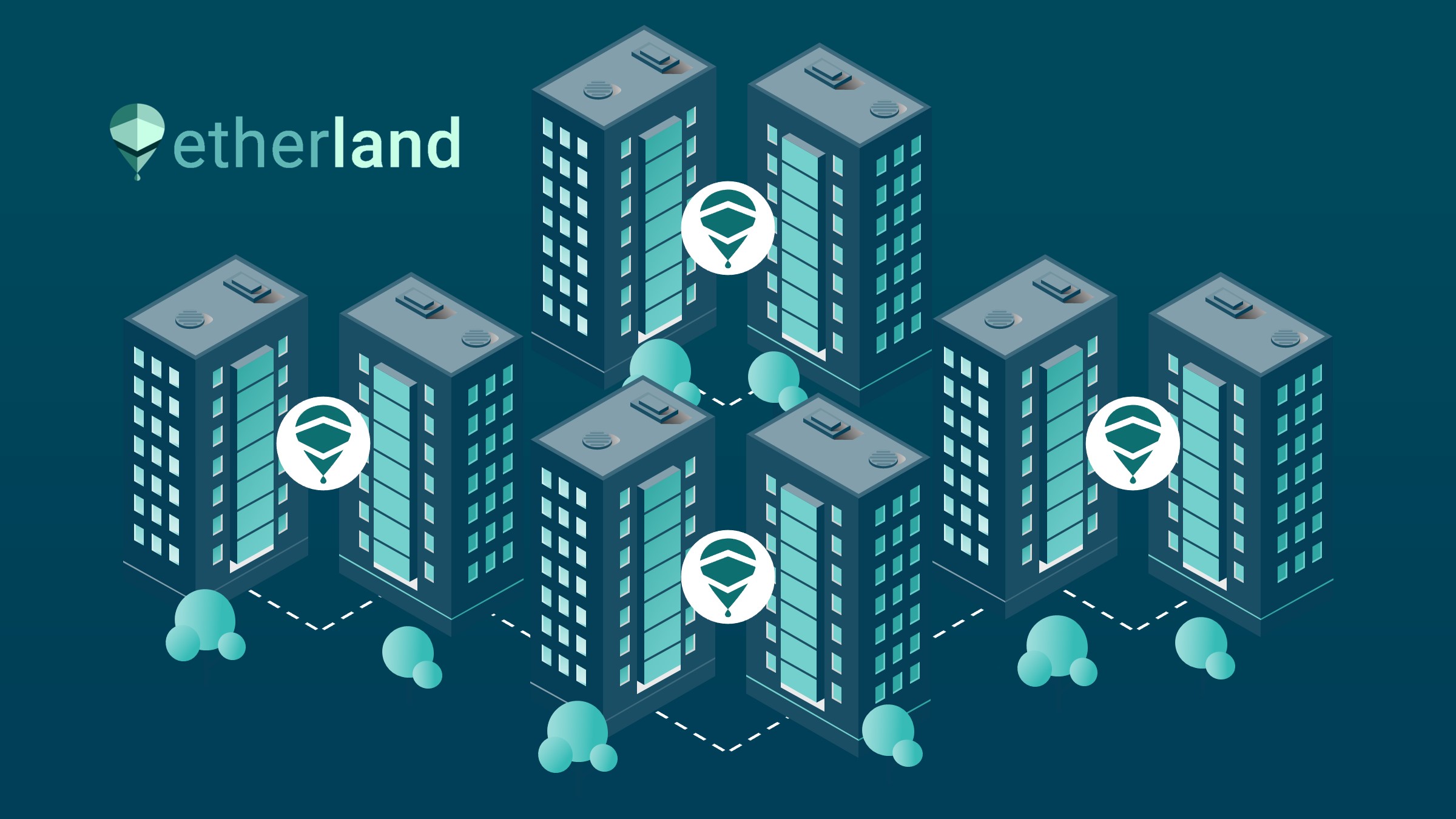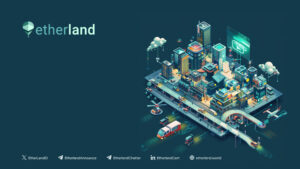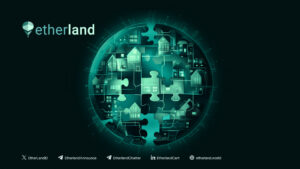Real estate tokenization has garnered significant attention as a potential solution to modernize and streamline the traditionally complex real estate industry. While tokenization can offer advantages like increased liquidity and accessibility, in 2024 and beyond, its true potential will be found in revolutionizing how real estate data is managed.
By leveraging blockchain technology, tokenization can address challenges related to secure document storage, reliable ownership records, and streamlined data sharing. Etherland’s platform focuses on utilizing tokenization to transform the way real estate data is organized, accessed, and utilized throughout the industry, providing decentralized solutions for a market that has been in need of modernization for decades.
Understanding Tokenization for Real Estate Data Management
Tokenization, the representation of assets on a blockchain, offers a powerful tool for revolutionizing how real estate data is managed. While often associated with fractional ownership and investing, let’s explore how tokenization can enhance the efficiency and transparency of real estate data processes.
At its core, real estate tokenization involves using blockchain technology to create digital tokens representing a share or aspect of a real-world asset. Here’s a simplified overview of how it works with properties:
- Choosing the Property: A property owner decides to tokenize their asset. This could range from a single apartment to a commercial building or even undeveloped land.
- Valuation and Data Organization: The property undergoes a professional appraisal, and crucial data points (ownership history, zoning regulations, survey information, etc.) are gathered and organized.
- Token Creation: Tokens representing the property’s data or specific aspects (like potential future rental income) are created using established blockchain standards.
- Distribution and Utilization: These tokens can be utilized in various ways: securely stored to represent ownership, traded to track property value fluctuations, or used by professionals to access reliable data during due diligence processes.
While the fractional tokenization of assets has for some time caught the market’s attention, what arguably holds more value is the use of blockchain technology for the storage, management, and exchange of data linked to assets such as property.
Blockchain, Smart Contracts, and Tokenization
Etherland’s technology provides the foundation for tokenization’s potential in real estate data management. Blockchains act as distributed databases where all transactions and data entries are permanently recorded and verified. This ensures a reliable and tamper-proof record of property ownership, historical records, and other crucial information.
Smart contracts, self-executing agreements embedded within blockchain code, can automate many real estate processes. This includes tasks like document transfers, verifying property data integrity, and facilitating secure data exchange between stakeholders.
For example, consider a tokenized property utilizing a smart contract. This contract could automate the verification of essential property details (appraisal value, zoning regulations, etc.), ensuring these crucial data points stored on the blockchain remain accurate and up-to-date.
Additionally, the smart contract could facilitate seamless sharing of documentation (title reports, surveys) between authorized parties, reducing delays and minimizing the potential for tampering. It would also enable precise control of data access, allowing granting and revoking access to specific data sets for different stakeholders (e.g., potential buyers, appraisers, lawyers) as needed.
Benefits and Applications of Tokenization for Real Estate Data Management
Tokenization, when applied with a focus on data management, offers several advantages for the real estate industry. These benefits enhance how real estate information is handled, shared, and utilized, potentially streamlining processes for professionals and owners. Here are some key areas where it offers advantages:
- Secure and Streamlined Document Management: Tokenization enables the creation of secure, immutable digital records for critical real estate documents (deeds, title reports, appraisals, etc.). This minimizes the risk of loss or tampering and allows for easy, authenticated access to crucial information.
- Enhanced Transparency and Traceability: Blockchain provides a tamper-proof ledger of ownership history and other property data. This simplifies title searches, due diligence processes, and promotes overall transparency within the industry.
- Efficient Data Exchange: Tokenization facilitates secure and trusted data sharing between stakeholders like agents, lawyers, property managers, and potential investors. This can streamline workflows, minimize delays, and reduce the potential for miscommunications.
Projects like Etherland’s Estatepedia demonstrate the power of tokenization for historical data preservation. By creating digital representations of landmarks, including detailed descriptions, historical records, and even 3D models, Estatepedia ensures the longevity of crucial cultural information, making it accessible to future generations.
Through the Estatepedia project, a historian researching a historic landmark can easily access verified historical records, architectural plans, and high-resolution images – all securely stored and organized through the power of tokenization and blockchain technology.
The Evolving Landscape (2024 and Beyond)
Real estate tokenization and document management are poised for significant growth in 2024 and beyond, evolving from an emerging technology into a more mainstream solution. Several key trends, including the rising importance of secure document management, will drive this expansion.
We can expect more sophisticated platforms designed specifically for the secure and immutable storage of real estate documents, simplifying workflows, and streamlining processes.
Additionally, developers will focus on addressing hurdles in interoperability between different blockchain projects and legacy systems. Seamless data exchange across stakeholders is essential for broader adoption. Finally, making tokenization’s benefits accessible to a wider audience of real estate professionals and stakeholders will require user-friendly interfaces, educational resources, and streamlined interaction processes.
This changing landscape calls for innovation. Etherland is dedicated to driving this transformation with its focus on B2B and personal solutions. The project’s 2024 roadmap prioritizes streamlining processes, increasing interoperability, and upgrading infrastructure. These efforts will pave the way for broader adoption of real estate data tokenization and management solutions.

Etherland’s Role in the Future of Real Estate Tokenization
Etherland is dedicated to building a comprehensive blockchain-based ecosystem for the real estate sector. Its key initiatives and ongoing projects include Estatepedia, a platform that demonstrates the potential of tokenization for preserving historical landmarks and cultural heritage. This project highlights Etherland’s commitment to utilizing blockchain solutions beyond traditional real estate.
Additionally, Etherland’s ProApp will offer powerful tools designed for property valuation, market analysis, and streamlined transactions. The platform is currently developing a suite of features tailored specifically for real estate professionals and institutions.
A core goal for Etherland is to increase accessibility and transparency within the real estate investment market. Tokenization offers the potential to create a more inclusive platform for participation.
Etherland is embarking on a major research and development push in 2024, funded partly by a Tecra Space campaign. The funds raised through this campaign will allow the team to accelerate the development of B2B tools, create new cultural heritage preservation solutions, and offer real estate professionals a platform for real estate data management.
Learn more about the Tecra Space fundraising campaign by joining the community on Telegram, Discord, and X.






